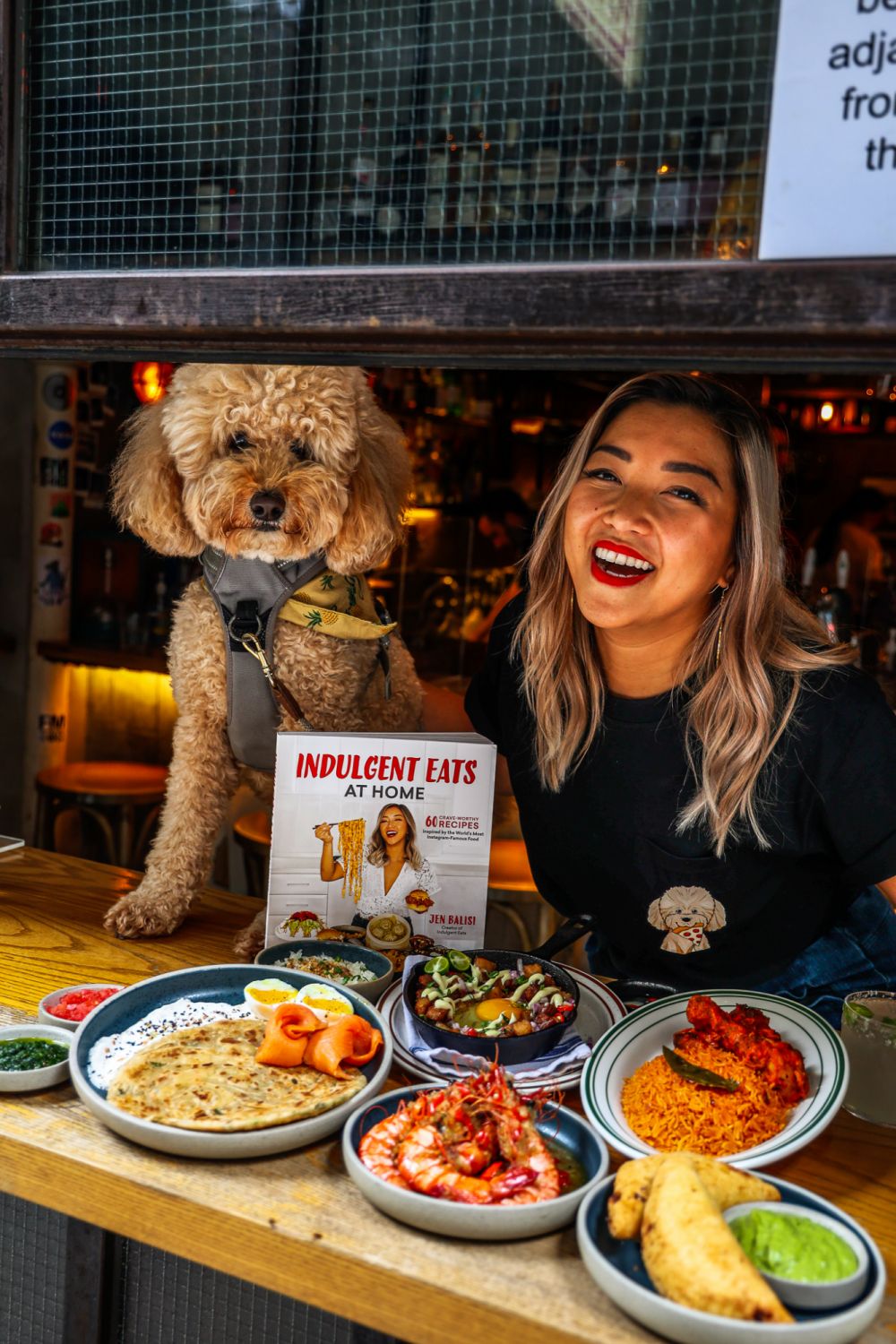‘People have felt empowered to finally, really embrace their roots and feel like there's an audience for it’
Having racked up 367,000 followers on her @indulgenteats Instagram account, published a cookbook of Filipino-inspired recipes, and held a number of culinary pop-ups across the city at the likes of The Shady Acres, Alvy's and Hatch, Filipino-American food influencer Jen Balisi is onto her biggest milestone yet: opening her own Filipino restaurant and bar, Barkada, under the Singular Concepts umbrella.
Translating to 'a group of close friends' in Filipino, Barkada—which is due to open in February 2023—takes over a street-facing space underneath the Mid-Levels escalator. Serving up dishes from her cookbook, as well as new creations that meld traditional Filipino cuisine with modern sensibilities, it's a boon for Filipino culinary representation in Hong Kong, where the Filipino community numbered at 200,000 in 2021 (a whopping one-third of the city's non-Chinese population) yet the cuisine remains near-invisible outside of several eateries that cater almost exclusively to fellow countrymen.
With dishes like adobo popcorn chicken, brown butter pancit, and sizzling sisig accompanied by a cocktail menu by Singular Concepts co-founder Gagan Gurung that incorporates the likes of pandan gin, ube, calamansi and more, Barkada looks to rope in a whole new contingent of diners and drinkers into the food culture of the Philippines. We spoke to Balisi to get the lowdown on how she plans to fly the flag for Filipino cuisine going forward.
Don't miss: Jen Balisi on her new cookbook, Indulgent Eats At Home

Tell us about yourself.
I'm 100% Filipino. I was born and grew up in the US; my mom was working as a nurse as many Filipino immigrants in the US are, so we found a lot of friends who were nurses in our community. Even though I wasn't in the Philippines, I always grew up around a very close, tight-knit Filipino community. My family also is really big on having family dinners all together every night and so I grew up watching Jeopardy while we were eating chicken adobo or pancit (Filipino noodles).
Similar to Chinese families, I eventually started helping out with making dumplings, rolling lumpia (Filipino spring rolls), learning how to cook rice, and also watching the sinigang (tamarind soup) while it boiled.
We would also travel back to the Philippines when I was a kid every two to four years to see relatives. As I grew up, especially once I went to college and studied abroad in Prague where there was no Filipino food (let alone and any Asian food), that's when I started learning how to cook for myself—both Filipino food, and then just food in general.
What are your kind of favourite characteristics of Filipino cuisine?
I love the combination of main flavour profiles in Filipino food, which are savoury, sour, sweet and spicy. It's just such a flavour bomb that I think is very unique to Filipino food—especially like the sour element.
A lot of people think of Filipino food as super rich, but what I love about it is the balance of flavours. Anytime you have something that's really rich or sweet, you always have an acidic component.
So you'll have a sweet charred barbecue with a rich soy sauce marinade that comes with a pickled papaya slaw on the side. Or you have a really sweet and garlicky longanisa sausage with suka (sugarcane vinegar) to add that acidity onto a sweet, rich protein.
Filipinos in general are very resourceful. We’re able to take a lot of humble ingredients and transform it into our own cuisine. For example, a lot of dishes are four or five ingredients, but you use an ingredient like fish sauce or patis (fermented fish sauce) or a fermented shrimp paste called bagoong, and suddenly something that's just water, meat, and vegetables becomes this complex, deep, rich-flavoured stew.
I feel like most people in Hong Kong aren't super familiar with Filipino cuisine. What are the prevailing ideas that they have of it?
A big part of it is that most of the Filipino restaurants are not out in front of you. One of my favourite places (Junel’s in Sai Ying Pun) is literally in an alleyway, so you have to know about it.
When people think of the Philippines, they think of Jollibee. I think other cuisines have done a better job of being more pronounced, having more restaurants, and people having a general knowledge of what a lot of these issues are.
For whatever reason, Filipino restaurants primarily cater to our own kind, so I used to bring a bunch of my friends to Bedana’s in Jordan and have a full spread of food and I’d be the one explaining what all the dishes are.
The education and awareness is definitely something that we're gonna do at Barkada. We’ll have a glossary of different ingredients, different cooking styles, and a map of the Philippines on the menu so that people can acquaint themselves with the regions. Our staff will primarily be Filipino, and trained to educate customers.

